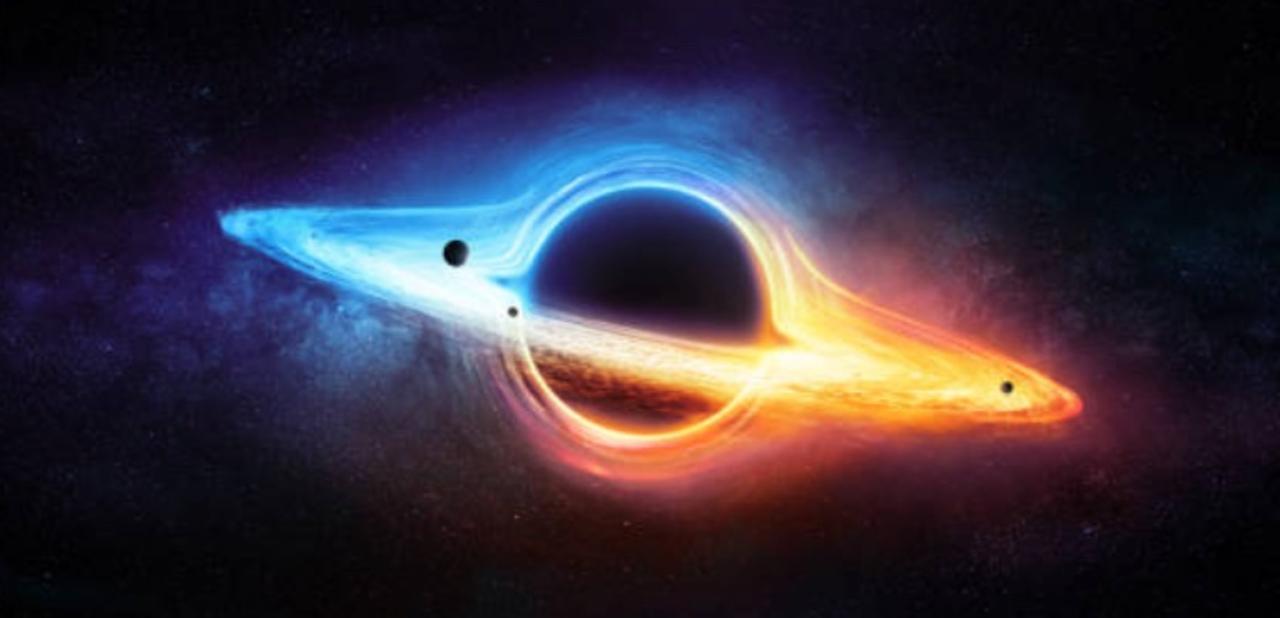
Scientists Use Black Hole Collisions, to Measure the Expansion , Rate of the Universe.
A new study examines how a pair of colliding black holes can be used to measure how fast the universe is expanding.
.
Phys.org reports that the trick could also lead to a greater understanding of how the universe evolved, what it's comprised of and where it's headed.
Astrophysicists at the University of Chicago call the new technique a "spectral siren" which uses special detectors to pick up cosmic echoes of black hole collisions.
When black holes collide, it creates a ripple in space-time that moves across the universe in the form of gravitational waves.
Each of the hundreds of gravitational waves detected so far has traveled across vast distances of space.
As they traveled, the universe continued to expand, changing the properties of the gravitational wave.
University of Chicago astrophysicist Daniel Holz, one of the paper's two authors, aims to measure how those signals have been changed and use that to calculate the expansion rate of the universe.
Holz and first author Jose María Ezquiaga suggest that the "spectral siren" method may provide a unique window into the universe's "teenage" years, about ten billion years ago.
It's around that time that we switched from dark matter being the predominant force in the universe to dark energy taking over, and we are very interested in studying this critical transition, Jose María Ezquiaga, a NASA Einstein Postdoctoral Fellow and Kavli Institute for Cosmological Physics Fellow, via Phys.org
